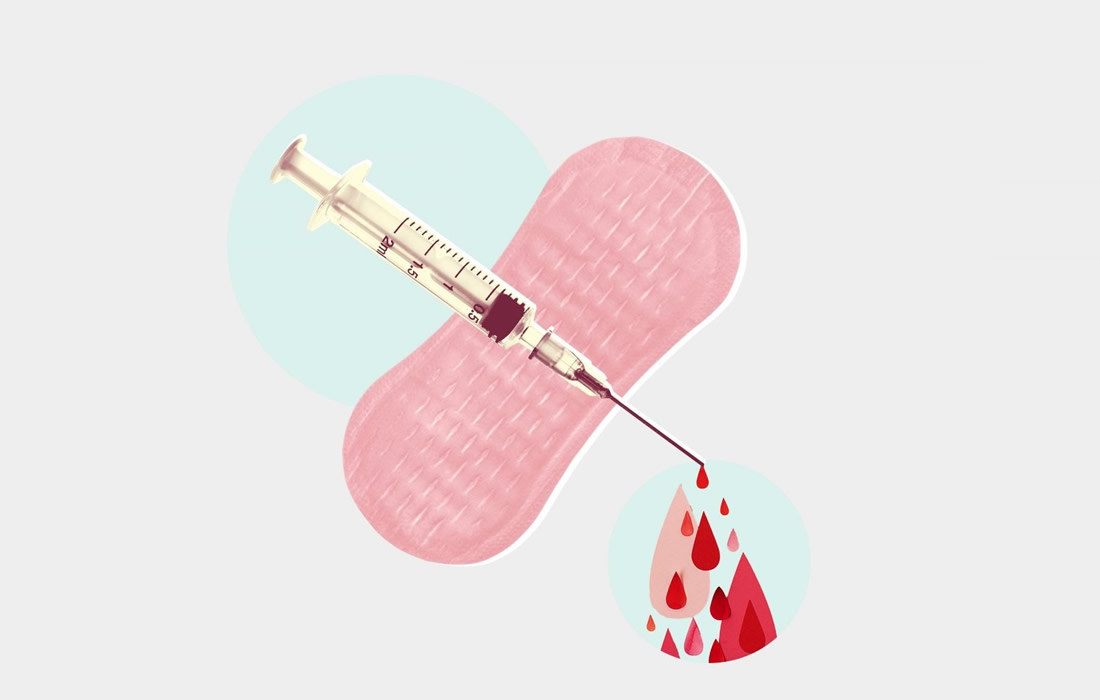COVID-19
Do COVID-19 Vaccines Affect Menstrual Cycles?
COVID-19 vaccines can cause several mostly mild side effects. However, changes to menstrual cycles or unexpected vaginal bleeding are not among the listed side effects for any COVID-19 vaccines available in the United States or the United Kingdom.
Despite this, thousands of women reported period changes following vaccination to the U.K.’s Medicines and Healthcare Products Regulatory Agency (MHRA). Researchers have not established a formal link between the vaccines and menstrual cycle changes and some medical professionals want to study the possibility.
Common side effects of COVID-19 vaccination listed by the UK’s Medicines and Healthcare Products Regulatory Agency (MHRA) include a sore arm, fever, fatigue and myalgia.
Most people who report a change to their period after vaccination find that it returns to normal the following cycle and more importantly, there is no evidence that COVID-19 vaccination adversely affects fertility. In clinical trials, unintended pregnancies occurred at similar rates in vaccinated and unvaccinated groups. In assisted reproduction clinics, fertility measures and pregnancy rates are similar in vaccinated and unvaccinated patients.
Menstrual changes have been reported after both mRNA and adenovirus vectored COVID-19 vaccines, suggesting that if there is a connection it is likely to be a result of the immune response to vaccination rather than a specific vaccine component. Vaccination against human papillomavirus (HPV) has also been associated with menstrual changes.
Indeed, the menstrual cycle can be affected by immune activation in response to various stimuli, including viral infection. In one study of menstruating women, around a quarter of those infected with SARS-CoV-2 experienced menstrual disruption.
Some biologically plausible mechanisms linking immune stimulation with menstrual changes include immunological influences on the hormones driving the menstrual cycle or effects mediated by immune cells in the lining of the uterus, which are involved in the cyclical build-up and breakdown of this tissue.
Although reported changes to the menstrual cycle after vaccination are short lived, robust research into this possible adverse reaction remains critical to the overall success of the vaccination program. Vaccine hesitancy among young women is largely driven by false claims that COVID-19 vaccines could harm their chances of future pregnancy. However, failing to thoroughly investigate reports of menstrual changes after vaccination is likely to fuel these fears. If a link between vaccination and menstrual changes is confirmed, this information will allow people to plan for potentially altered cycles.
Clear and trusted information is particularly important for those who rely on being able to predict their menstrual cycles to either achieve or avoid pregnancy.
Clinical trials provide the ideal setting in which to differentiate between menstrual changes caused by interventions from those that occur anyway, but participants are unlikely to report changes to periods unless specifically asked. Information about menstrual cycles and other vaginal bleeding should be actively solicited in future clinical trials, including trials of COVID-19 vaccines. Further studies are needed in order to elucidate the mechanism by which this reaction might be occurring.
Source:
https://www.bmj.com/content/374/bmj.n2211

